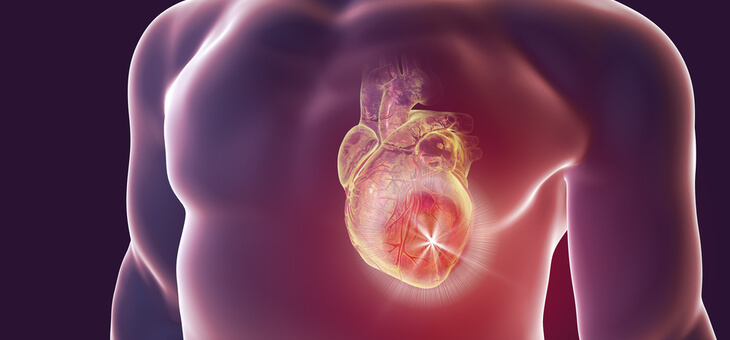A novel therapy has been found with the potential to dramatically reduce the risk of heart attack by lowering cholesterol and reducing harmful plaque build-up in arteries.
Researchers from Monash University’s Victorian Heart Institute (VHI) have demonstrated in a study that a combination of cholesterol-lowering drugs known as statins and the anti-lipid medication Evolocumab can reduce plaque levels in arteries and even change the plaque’s composition.
Coronary heart disease, responsible for most heart attacks, is generally caused by a narrowing of the arteries due to plaque build-up and is responsible for the deaths of around 20 Australians daily. Plaque consists of cholesterol, fatty substances, waste products, calcium and the clot-making substance fibrin.
It typically builds up on artery walls over many years forming clogs, which limit or stop blood flow to your heart muscle.
Read: Almost half can’t identify heart attack symptoms, study finds
The VHI study, published in the American Journal of Cardiology: Cardiovascular Imaging, followed for 12 months high-risk patients who had suffered a heart attack, treating them with Evolocumab and a combination of statins.
The results showed that the treatment significantly changed the biological composition of plaque in arteries by not only reducing its size but by lowering its temperature from hot to cold, effectively turning it into relatively harmless scar tissue.
The therapy was also highly effective at lowering patients’ levels of LDL cholesterol, also known as ‘bad’ cholesterol. How successful the treatment was at changing plaque levels showed a direct correlation to how much bad cholesterol had been lost.
Read: Women receive worse treatment than men for heart attacks: study
“It is important after a heart attack to lower cholesterol as much as possible and with this new therapy, we can reduce it to an extent we haven’t seen before while also stabilising plaque, making it less likely to burst,” says Professor Stephen Nicholls, VHI director and lead author of the study.
“This is a new frontier in therapy.”
Aside from drugs, there are number of other ways to reduce build-up of plaque in the arteries including eating a diet low in saturated fats, with fewer sugars and simple carbohydrates, and rich in fruits and vegetables; not smoking; exercising regularly and managing your stress levels.
Read: The food items that could cause a second heart attack
Suffering a heart attack puts you at greater risk of having a second one, with around 20 per cent of heart attack patients hospitalised with another one within five years. Your chances of surviving a second heart attack are also greatly reduced.
“If you’ve had a heart attack, you are twice as likely to die prematurely compared to the general population,” Prof. Nicholls says.
“These findings show that plaque reduction and stabilisation was doubled for high-risk patients who had already experienced a heart attack, making it effective for those who need it most.”
If you enjoy our content, don’t keep it to yourself. Share our free eNews with your friends and encourage them to sign up.

